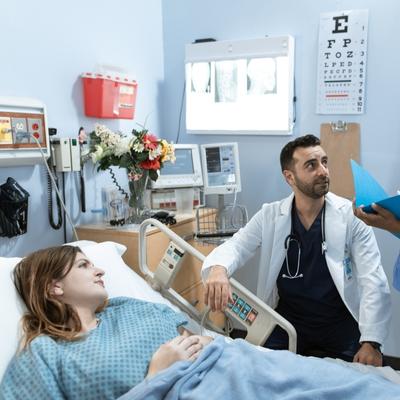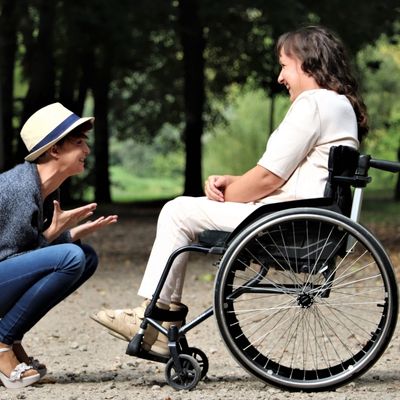In the realm of pediatric care, few tools are as transformative and essential as pediatric patient lifts. These specialized devices play a crucial role in the daily lives of children with mobility challenges, their families, and healthcare providers. More than just miniature versions of adult lifts, pediatric lifts are thoughtfully designed to meet the unique physical, emotional, and developmental needs of young patients. As we explore the world of pediatric patient lifts, we'll uncover how these innovative tools not only facilitate safe transfers but also contribute significantly to a child's independence, dignity, and overall development. Whether you're a parent, caregiver, or healthcare professional, understanding the nuances of pediatric lifts is key to providing compassionate, effective care for our youngest patients with mobility needs.
The Evolution of Pediatric Patient Lifts: From Scaled-Down to Specialized
The journey of pediatric patient lifts reflects a growing understanding of children's unique care requirements.
Traditional Approaches
- Adapted adult lifts with limited adjustability
- Focus primarily on basic transfer functionality
- Limited consideration of child-specific ergonomics
- Minimal attention to psychological impact on children
Modern Pediatric Lift Innovations
- Specifically designed for children's bodies and needs
- Incorporation of child-friendly themes and colors
- Enhanced adjustability to accommodate growth
- Integration of features supporting developmental goals
- Focus on creating positive, non-intimidating experiences
Key Features of Pediatric Patient Lifts
Essential Elements in Pediatric Lift Design
- Size and Scale: Compact design suitable for children's bodies
- Adjustability: Easily adaptable to accommodate growth
- Weight Capacity: Typically ranging from 150 to 350 lbs
- Child-Friendly Aesthetics: Colorful, engaging designs to reduce anxiety
- Safety Features: Enhanced stability and secure sling attachments
- Smooth Operation: Gentle movements to prevent startling children
- Versatility: Suitable for various transfer scenarios and therapy needs
- Ergonomic Controls: Easy-to-use interfaces for caregivers
Spotlight on Innovative Pediatric Lift Solutions

Hoyer Advance-E Power Lift
While not specifically designed for pediatrics, this compact lift offers features that can be adapted for older children and adolescents.
- Compact design suitable for home and clinical use
- Smooth electric operation for gentle transfers
- Adjustable base width for various transfer situations
- Compatible with a range of sling types for personalized support

Bestlift PL350CT Full Body Patient Lift
This versatile lift, while not pediatric-specific, demonstrates features that can benefit older children and teens.
- Compact and foldable design for easy storage and transport
- 350 lb weight capacity suitable for growing children
- Adjustable base for navigating various furniture arrangements
- Smooth-rolling casters for easy maneuverability

Invacare Cloth Mesh Full Body Sling
While not exclusively for pediatric use, this sling showcases features beneficial for supporting children during transfers.
- Breathable mesh material for comfort during extended use
- Full-body support ideal for children with limited upper body strength
- Available in multiple sizes to accommodate growing children
- Easy to clean, maintaining hygiene for sensitive users
Pediatric Lifts in Various Care Settings
1. Home Environments
In home settings, pediatric lifts play a crucial role in daily routines, from transfers to and from bed to assisting with bathing and toileting. They enable families to provide comprehensive care while maintaining a child-friendly home atmosphere.
2. Schools and Educational Facilities
Specialized lifts in educational settings support inclusive learning environments, allowing children with mobility challenges to participate fully in classroom activities, physical education, and social interactions.
3. Pediatric Hospitals and Clinics
In medical settings, pediatric lifts facilitate safe transfers for examinations, treatments, and therapy sessions. They are essential for maintaining comfort and reducing anxiety during medical procedures.
4. Rehabilitation Centers
Pediatric lifts are integral to rehabilitation programs, supporting various therapy exercises and helping children practice movements that contribute to their physical development and independence.
For more insights on how patient lifts are used in different healthcare settings, explore our article on Patient Lifts in Institutional Settings: Hospitals, Nursing Homes, and Rehabilitation Centers.
Challenges and Strategies in Pediatric Lift Usage
While pediatric lifts offer numerous benefits, their implementation comes with unique challenges:
Child Anxiety
Children may feel fearful or uncomfortable with lift usage.
Rapid Growth
Frequent adjustments needed to accommodate children's growth.
Diverse Needs
Varying conditions require highly adaptable lift solutions.
Caregiver Training
Ensuring all caregivers are properly trained in child-specific lift use.
Strategies for addressing these challenges include:
- Incorporating play and positive reinforcement in lift usage routines
- Choosing lifts with wide adjustment ranges to accommodate growth
- Customizing lift accessories to meet individual child needs
- Providing comprehensive, ongoing training for all caregivers
Choosing the Right Pediatric Lift: Key Considerations
Selecting the appropriate pediatric lift involves careful consideration of several factors:
For more detailed guidance on selecting the right patient lift, including considerations for pediatric use, read our article on Choosing the Right Patient Lift for Home Use: A Comprehensive Guide.
Maintenance and Care for Pediatric Lifts
Proper maintenance of pediatric lifts is crucial for ensuring safety and longevity. Follow these essential care tips:
- Regular Inspections: Check all components, especially sling attachments, before each use.
- Cleaning: Clean the lift regularly, using child-safe, non-irritating disinfectants.
- Lubrication: Keep moving parts well-lubricated according to manufacturer guidelines.
- Sling Care: Wash slings regularly and inspect for any signs of wear or damage.
- Battery Management: For electric lifts, ensure batteries are charged and replaced as needed.
For more information on maintaining patient lifts, including tips applicable to pediatric models, check out our guide on Patient Lift Maintenance: Essential Tips for Longevity and Safety.
Conclusion: Empowering Young Lives Through Specialized Care
Pediatric patient lifts represent more than just mobility aids; they are gateways to independence, development, and improved quality of life for children with mobility challenges. By providing safe, comfortable transfers and supporting various therapy activities, these specialized lifts play a crucial role in a child's physical and emotional growth.
The thoughtful design of pediatric lifts, from their child-friendly aesthetics to their adaptability for growing bodies, demonstrates a deep understanding of the unique needs of young patients. As we continue to advance in pediatric care technology, these lifts will undoubtedly play an increasingly vital role in supporting children's health, education, and social participation.
For families, caregivers, and healthcare professionals, embracing the use of pediatric lifts opens up a world of possibilities for children with mobility challenges. It allows them to engage more fully with their environment, participate in daily activities, and achieve developmental milestones that might otherwise be difficult to reach.
Support Your Child's Mobility Journey
Explore our range of patient lifts and accessories suitable for pediatric use. Our expert team can guide you in selecting the right equipment to support your child's unique needs and developmental goals.
Discover Pediatric-Friendly Lift Solutions








